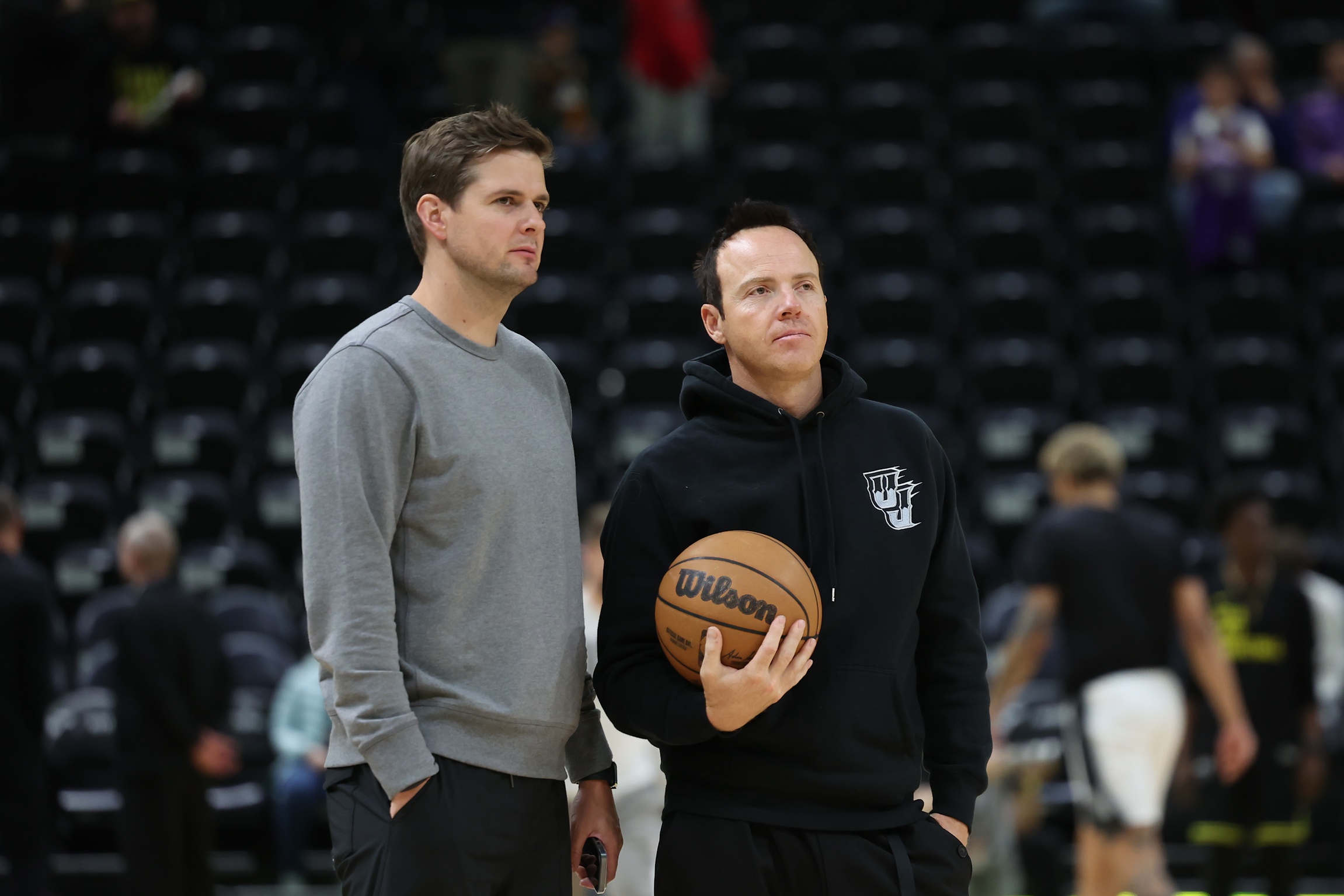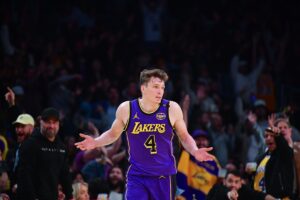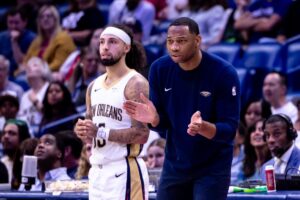The Utah Jazz are hoping to make a blockbuster move this summer. As a result, Collin Sexton and Jordan Clarkson “could become available on the trade market,” per HoopsHype’s Michael Scotto.
Jazz to Make High-Octane Scorers Available for Trade
Sexton should have the higher trade value. However, the former No. 8 pick has been dealing with an unsavory reputation since his days with the Cleveland Cavaliers. In his rookie season, various Cavs players lamented his lack of court vision. By his final season with Cleveland, he had improved as a passer, but was still seen as a poor fit next to Darius Garland in the backcourt due to his size.
These criticisms permeated his reputation thoroughly, to the point where Jazz head coach Will Hardy admitted he made decisions about Sexton based on a preconceived notion of him. That’s the same uphill battle Sexton faces when rival executives determine his value. For as much as front offices tout their analytics and scouting departments, they often get their opinion from media members, from print to screen.
To that point, Sexton had a star turn in 2023-24, the Jazz winning once they put the ball in his hands. Yet, instead of being allowed to breakout in a Jalen Brunson-like manner, the rigid Hardy undermined his potential by relying on players who weren’t as productive or efficient. One such player was Clarkson, which led to the former Sixth Man of the Year being put on the trade block.
In 2023-24, Sexton averaged 21.1 points (and 5.6 assists) per game on 49.0 percent shooting from the field and 41.8 percent shooting from 3 as a starter. For comparison, Clarkson averaged 16.6 points (and 4.9 assists) per game on 39.9 percent shooting from the field and 29.5 percent from 3 when he started in 2023-24.
Yet, Clarkson routinely played more minutes than Sexton. Indeed, he averaged 30.6 minutes per game, while Sexton averaged 26.6 minutes per game. Unless the Jazz were tanking, it’s simply an illogical decision.
The Writing’s on the Wall
It became clear that one of Sexton or Clarkson has to be traded.
The primary reason is that Hardy’s head-scratching rotations are steeped in favoritism. Clarkson is beloved by Hardy, so he receives more playing time than he should, to put it bluntly. Yet, he’s all but maxed out his potential, so his minutes and reps negatively impact that of younger players.
To that point, Keyonte George’s naturally aggressive play style is another factor.
A backcourt with two strong scorers should be viewed as a blessing. However, a backcourt with three high-octane point producers requires sacrifice. Unfortunately for the Jazz, each of Sexton, Clarkson, and George have individual goals that makes that difficult. They all want to start. Sexton and George want to be stars. Clarkson would like to win another award.
Utah’s Fantasy More Important Than Reality
Utah has been staunchly resistant to accepting reality when it doesn’t suit their agenda. Due to the desire for George to be their star, they were reluctant to accept Sexton’s exponential growth in 2023-24. Nine times out of 10, when players have dramatic jumps in their performance and it’s not in a contract year, teams look to harness their talent. That’s not the case with the Jazz and Sexton though.
It’s ironic really. They devalued Sexton based on a narrative created during his rookie season. Yet, they looked at George’s first-year struggles through rose-colored glasses. Enamored by his pretty jumper, they overlooked the eyesore numbers. So, instead of trying to develop George and Sexton together, they look at it as an either-or scenario.
One would think Jazz CEO Danny Ainge isn’t the one who brought Jayson Tatum and Jaylen Brown together. As the Boston Celtics’ general manager, he felt justified in not splitting up the duo because they complemented each other. The pairing of George and Sexton is similar in that regard.
Yet, Utah sees Sexton as a trade chip instead of a building block. They see George as the savior, no matter who really delivered results.






